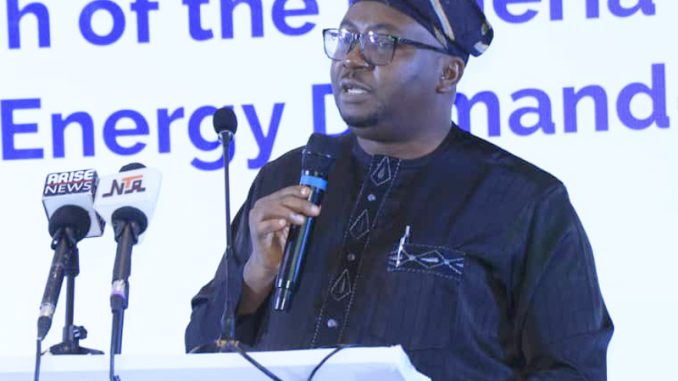
The Minister of Power, Chief Adebayo Adelabu, has said that there is a need to build confidence in Nigeria’s central power supply, as the industrial sector begins to jettison the national grid and seek alternative sources.
The minister spoke in Abuja at the commissioning of training equipment and simulation infrastructure for capacity development in power distribution, built by the National Power Training Institute of Nigeria (NAPTIN) with support from the Japan International Cooperation Agency (JICA).
Adelabu said that Nigeria must focus on building local competencies, so as to manage the nation’s foreign exchange and develop human capacities that can manage the resources.
“He also emphasised the need for the power sector to restore the confidence of the consumers, particularly the industrial sector on the reliability of the grid, which is cheaper than the captive, embedded, and the renewable power supply,” a statement by the minister’s spokesman, Bolaji Tunji, stated.
He added: “We have provided access to over 150 million Nigerians through the grid and renewable supply to the rural populace but we still have over 80 million Nigerians that we still need to provide power for.
“This formed one of our discussions at the just concluded meeting of African heads of States in Dar es Salam in Tanzania, which was organised by the World Bank and the African Development (AfDB), where it was agreed that 300 million Africans must be provided with electricity by the year 2030.
“But the question is; why are people and particularly, industries focusing on captive and embedded power supply? The answer is that our grid is still a work in progress that we are building to ensure its reliability, even though these alternative sources are more expensive. We must begin to do something about this and bring our industries back to our grid”, the minister said.
He also called on stakeholders in the sector, including generation, transmission and the distribution companies to take advantage of the opportunity offered by the new facility to get their staff trained.
“I want to emphasise that there is a need for intense training of manpower in the sector. Electricity Company of Nigeria (ECN), the National Electricity Power Authority (NEPA) and the Power Holding Company (PHCN) all realised this. These agencies, even though they had their shortcomings and we have found ourselves where we are today, they took training very seriously.
“They focused on training and what we are witnessing here is one of their investments. About 80 per cent of the workforce came from them. Generation, transmission and distribution losses can be drastically reduced through constant training and retraining of the workforce in these modern facilities.
“With access to modern simulation tool sets, we believe our workforce will engage in hands-on, practical learning experiences that mirror real-world scenarios. This will undoubtedly enhance local competency and confidence in managing complex power systems and reacting effectively to any challenges that may arise,” Adelabu added.
He reiterated the importance of the training facilities, saying the project underscored the importance of international cooperation and knowledge exchange with the government of Nigeria and the development partners.


